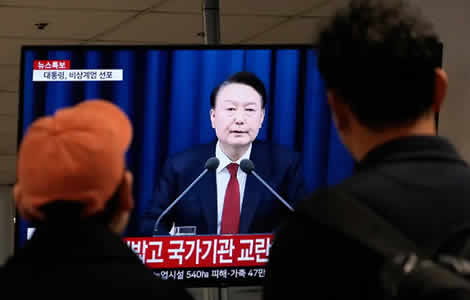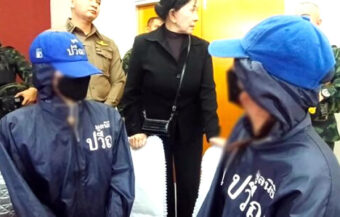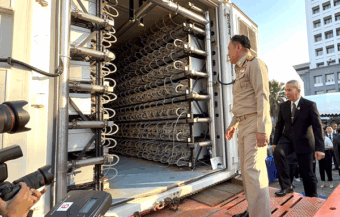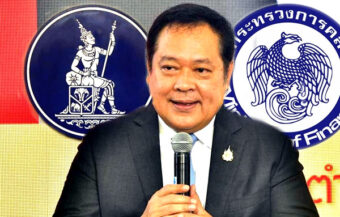South Korea’s President Yoon Suk Yeol declares martial law, heightening tensions with North Korea and the US, impacting the Indo-Pacific region and alarming Thailand. The move threatens democracy, stability, and investor confidence while destabilizing regional relations.
On Tuesday evening, the President of South Korea shocked the world by announcing martial law. It came as police ringed the National Assembly in the capital, Seoul. The news will also increase already strained political tensions in Asia. The involvement of North Korea in the Ukraine War and the transition to a new US administration are further destabilizing factors at this time. Critics also say the news will be seen as a setback to democracy in Asia and, indeed, to investor confidence in the region. The South Korean economic success story since the 1980s has previously been hailed as an inspiration by Western leaders.

In a move not seen since the 1980s, South Korea’s President Yoon Suk Yeol has declared martial law.
The decision is raising alarm both domestically and internationally. Critics warn that the move could have far-reaching impacts, particularly for Thailand and the broader Indo-Pacific region.
The declaration comes amid rising tensions with North Korea and Russia’s involvement in the war with Ukraine. Moreover, the timing coincides with the transition of power in the United States, which will change hands on January 20, 2024.
Yoon made the announcement during a late-night televised address on Tuesday. He accused the left-wing bloc, which controls the national assembly, of harboring pro-North Korean sympathies.
South Korea’s president declares martial law, raising alarms for Thailand and the broader Indo-Pacific region
He also alleged that opposition lawmakers were plotting rebellion. Yoon, a former prosecutor known for his hardline approach, promised to “eliminate anti-state forces as quickly as possible” and restore normalcy to the country. The state-run news agency Yonhap reported that the military had banned political party and parliamentary activities.
Yoon pledged to “eradicate pro-North Korean forces” and protect South Korea’s constitutional democratic order. He did not provide specifics on how martial law would be enforced but urged the public to support him. He asked citizens to tolerate “some inconveniences” as the situation unfolded.
Opposition leaders quickly denounced the decision. They called the declaration unconstitutional and claimed it violated democratic principles. Yoon has been at odds with the left-wing majority in parliament for some time. Just last week, the legislature voted to cut nearly $3 billion from Yoon’s proposed 2025 budget. The cuts focused on the presidential office, national prosecutors, and the police, signaling resistance to the president’s authority.
Yoon’s martial law declaration risks complicating relations with the US and increasing regional instability
Internationally, Yoon’s decision is likely to complicate South Korea’s relations with the United States. South Korea’s most important ally, the US, has worked closely with the country on security and regional stability. The Biden administration expressed concern over the martial law declaration. On Monday, the US National Security Council stated it was “monitoring the situation closely” and in contact with the South Korean government.
The timing of the martial law declaration adds to the sensitivity of the situation. North Korea has become an increasingly active partner in Russia’s war with Ukraine. This has heightened regional instability in the Indo-Pacific. For Thailand, which already faces complex regional relations, the move could escalate tensions. Experts are worried that it could lead to further uncertainties, particularly as the US prepares for a leadership change in January 2024.
The US administration has not condemned Yoon’s actions outright. However, analysts believe the declaration will strain the US-South Korea alliance. The political crisis could also destabilize the region, affecting global security. Economic consequences are another concern.
South Korea’s currency slumps, signaling investor unease as political crisis deepens
South Korea’s financial markets reacted immediately to the news. The won, South Korea’s currency, dropped to a two-year low. The won fell 1.9% against the dollar on Tuesday, reaching 1430, its weakest level since October 2022. Currency analysts warned that the won could face further pressure if the political crisis deepens.
Lee Hardman, a currency analyst at MUFG, noted, “This is not a normal thing to happen in a developed economy.” He added that he expected more instability in the won’s value in the coming days. The decline in the won highlights growing investor unease over South Korea’s political uncertainty.
North Korea reminds the World of its evil state repression by executing 30 young students for watching TV
Srettha warns of military conflict over rising South China Sea disputes with Beijing including Taiwan
Yoon’s right-wing People Power Party (PPP) suffered a significant defeat in parliamentary elections earlier this year. The left-wing opposition won a resounding victory in April.
Martial law declaration exacerbates political fractures within South Korea’s ruling party, challenging Yoon
This loss, combined with increasing friction within the PPP, has isolated Yoon politically. Tensions between Yoon and PPP leader Han Dong-hoon have intensified over the past year. After the declaration of martial law, Han joined the opposition in denouncing the president’s actions. This further deepens the divide within the ruling party, making it harder for Yoon to govern effectively.
Yoon’s martial law declaration threatens to reshape South Korea’s political landscape. Its consequences could extend far beyond the country’s borders. Analysts are watching closely to assess how this crisis will unfold. The domestic and international implications are significant, particularly for the Indo-Pacific region.
In Thailand, concerns are rising about the potential impact on trade and diplomatic relations. Thailand is one of South Korea’s major trading partners, and any political instability could disrupt economic ties.
As the situation develops, experts are monitoring the potential long-term effects. The coming weeks will be critical in determining whether South Korea can stabilize or if further unrest will follow. With the US transition in 2024, the global ramifications of this crisis are still unfolding.
Presently there are estimated to be two hundred thousand Thais working and living in South Korea. The August official figure was 190,690.
Join the Thai News forum, follow Thai Examiner on Facebook here
Receive all our stories as they come out on Telegram here
Follow Thai Examiner here
Further reading:
South Korean tourist taken from Bangkok nightlife centre, tortured, murdered and buried in a bin
Fear-mongering, fake news and disinformation being stoked in China against visiting Thailand
Chinese tourists arrested on kidnapping and extortion charges insist they are innocent


















